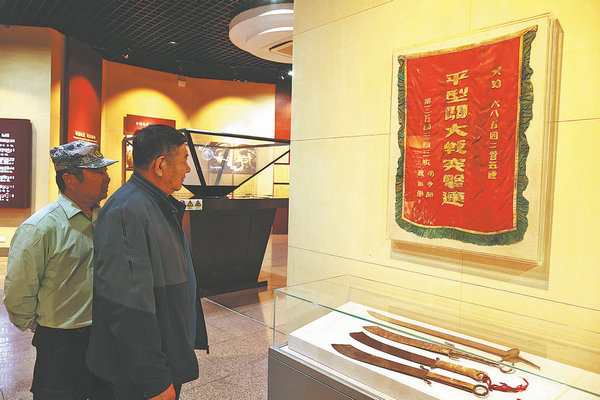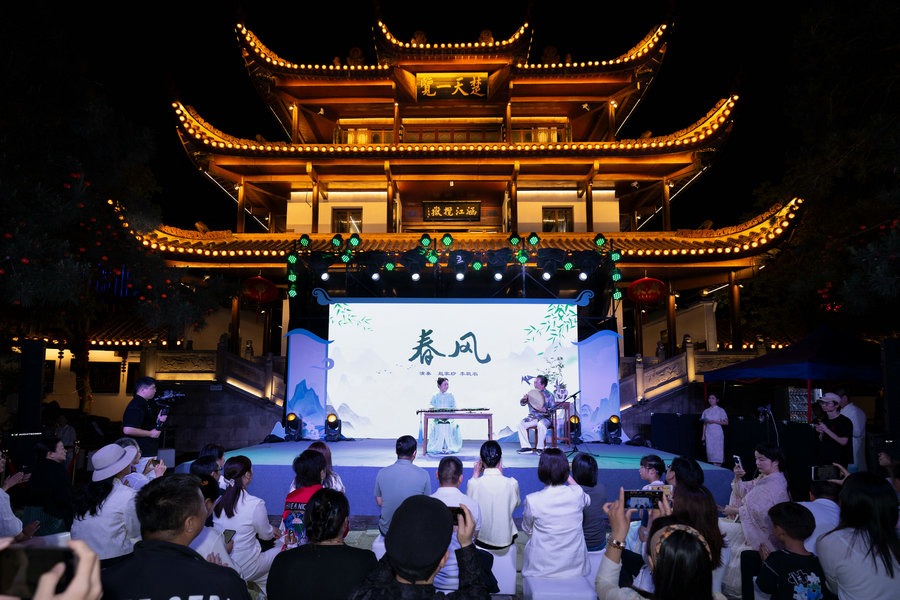Echoes of history still resonate
Major anniversary sees visitors flock to site of key victory against Japanese wartime aggression, Li Yingxue and Zhu Xingxin report in Datong, Shanxi.


On the afternoon of Sept 23, 1937, after attending a meeting, Zhang returned to pack for what he sensed would be a brutal battle. Feeling the weight of what lay ahead, he handed his ever-present leather satchel to young Meng for safekeeping — a quiet gesture of trust. He never came back.
Zhang died heroically days later in the fierce fighting at Yimaling, a battle to stop Japanese reinforcements to Pingxingguan. The satchel remained with the Meng family. In 1995, before she passed, Meng's mother entrusted the satchel to her son, urging him to protect the fallen soldier's belongings with care.
After joining the revolution, Meng Dehai kept the satchel with him at all times. In 1997, upon retiring and returning to his hometown in Lingqiu county after decades in the Inner Mongolia autonomous region, he handed over the bag — preserved for 60 years — to the county's Party history research office.
"This artifact is historically unique," Yuan explains. "It is the only known wartime satchel of an Eighth Route Army grassroots commander that was entrusted to a civilian, survived the flames of war, and has remained intact to this day.
"What moves me most is the satchel's 60-year journey — a relay of loyalty and trust across two generations," Yuan says. "It's more than an object. It symbolizes the profound bond between the army and the people. The Eighth Route Army protected civilians with their lives; in turn, civilians guarded the legacy of the fallen with theirs. That mutual sacrifice — that shared will — is the soul of China's wartime spirit."

































